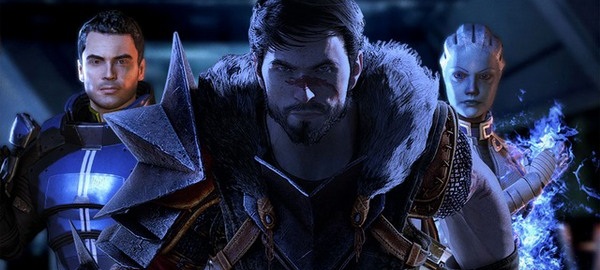BioWare’s Director Yanick has unveiled some interesting new information about the next installment of the Mass Effect series. According to Yanick, the next Mass Effect game will be powered by DICE’s Frostbite 2 engine, something that has also been confirmed by DICE’s Rendering Architect, Johan Andersson. In addition, the new Mass Effect game will be influenced by… Dragon Age III.
As Yanick said:
“There is really not much I can tell you about the game right now, except that it will be built with the amazing technology of Frostbite as its foundation, enhanced by many of the systems that the Dragon Age III team has already spent a lot of time building.”
Right… well… you know… I mean… come ooooooooon. The first Dragon Age and Mass Effect games were created with an entirely different focus. Dragon Age was supposed to be the RPG-heavy title, while Mass Effect was meant to be a more action-oriented game. They were two completely different franchises that targeted specific audiences. Fast forward a couple of years, and here we are with two franchises that have been butchered in order to maximize EA’s and BioWare’s profits. Hooray.
This is something we’ve noticed happening to a lot of old/classic/great franchises. Instead of focusing on what made a game amazing, developers seem to be shifting their focus on entirely different things; things that their fans have never even asked for. Take for example Dead Space 3 and its co-op gameplay, or the FPS version of Syndicate, or Hitman: Absolution – a game that was bashed by PC Gamer for being a mess and not up to the standards set by its predecessors – or Ghost Recon: Future Soldier, or Splinter Cell: Conviction (and let’s hope that Ubisoft will finally realize that Splinter Cell fans want proper stealth mechanics).
Yes, we are pretty sure that publishers are pushing developers to implement ‘modern-day’ features in order to reach a broader audience, but this is no excuse for ruining a great franchise. Developers need to realize that their X game was a hit because it focused on a specific type of gamers. Yes, the gaming industry is undergoing a crisis and is not as profitable as it was a couple of years ago, and from a business point of view, we kind of understand this obsession with all those catchy features. However, it needs to stop, and that’s why most – if not all – unique games will be crowd-funded via Kickstarter, IndieGoGo, or any other platform/program that offers such an option.
Yanick has also revealed that the new Mass Effect game will be ‘very respectful of the heritage built over the course of the first three games‘. However, the company will be exploring new directions, both on the gameplay and story fronts. Yanick tried to calm fans down by saying that they can still expect the pillars the franchise is known for to be fully intact – including diverse alien races, a huge galaxy to explore, and cinematic storytelling.
So the new Mass Effect will be something new that will remain true to its origins. Sounds like a new Splinter Cell: Conviction to us. After all, Ubisoft was also trying to explore new directions on the gameplay with Conviction. Oh, and the French company did say – back then – that Conviction would remain true to its origins and blah blah blah. However, we’ll give BioWare the benefit of the doubt (at least for now). The point here is that things are not looking good for most Mass Effect fans.
So, an inevitable evolution of a series or an experimentation for reaching a broader crowd? What’s your take on this?

John is the founder and Editor in Chief at DSOGaming. He is a PC gaming fan and highly supports the modding and indie communities. Before creating DSOGaming, John worked on numerous gaming websites. While he is a die-hard PC gamer, his gaming roots can be found on consoles. John loved – and still does – the 16-bit consoles, and considers SNES to be one of the best consoles. Still, the PC platform won him over consoles. That was mainly due to 3DFX and its iconic dedicated 3D accelerator graphics card, Voodoo 2. John has also written a higher degree thesis on the “The Evolution of PC graphics cards.”
Contact: Email

